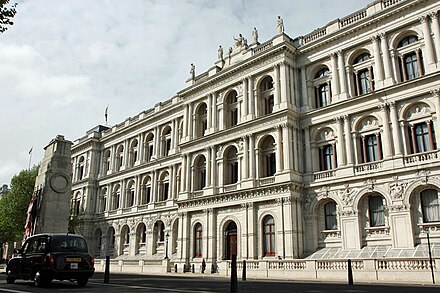Article

The UK needs a new approach to international affairs
For a generation of diplomats following the fall of the Berlin Wall, there was optimism about the future, a sense of idealism even. That confidence led to huge strides in reducing global poverty, multilateral efforts on conflict and a collective response to a global economic crisis. But it also generated complacency, hubris and over-reach.
On the back of failures in Afghanistan, Iraq, Syria, Libya, the inequity of the Covid response and now Gaza, the global order is fractured. We are in a period of democratic recession. Nationalism and polarisation are on the rise. The UN was orphaned by the Donald Trump presidency and has been vandalised by Vladimir Putin. Faced by climate change, weaponised AI and conflict, international collaboration has lost its mojo.
So should the UK retreat from a more threatening world? Former national security advisers, permanent secretaries, security chiefs and ambassadors recently gathered in Oxford to debate how we must change our approach. The responses were stark. As a highly interconnected economy, the UK’s future security and prosperity depends heavily on rules and values being upheld globally. But we must urgently reform to respond to a world in flux and our post-Brexit reality as an “offshore nation”.
For much of the past 10 years, we have wrestled with our national identity. After a period when the world has often been bewildered by our public discourse, the UK has complex, patient work to do to rebuild our alliances and reputation. While some are tempted to reduce our foreign policy to pound shop Churchillian soundbites, we cannot simply brush aside issues around our historical legacy. Our past is prominent in how we are seen globally — we should have the courage to lean into that.
But that does not mean embracing a narrative of decline. We continue to have very significant influence as a member of Nato, the Five Eyes alliance and a permanent member of the UN Security Council; as the sixth-largest economy and as a hub for finance and technology. We have heft, but we need to use it better. That means doing things well, not shouting about how well we do things. It means engaging with humility and respect and sharing power with countries beyond those that ran the world in 1945.
It also means a much better focused and co-ordinated set of mechanisms across government — including engagement with the devolved administrations — to deliver a coherent international policy. In Whitehall, we need to go further in bringing together the instruments of national power. The National Security Council machinery is spluttering and operates in isolation from economic policymaking. The supporting secretariat capacity is under-resourced.
The Foreign Office needs to be revamped into a new international affairs ministry with a clear long term-mission. It must harness better the power of the agencies under it and rebuild capability to deliver international development and climate action. We need to invest more in our diplomats and international experts, and we need ministers who stay in their jobs long enough to get on top of their briefs.
The UK should also set a broader spending commitment for international engagement. Currently, we have commitments for defence and aid, but we would be better served by having a more flexible medium-term one for international engagement alongside 2 per cent of gross domestic product for defence — 1 per cent of gross national income to cover planned international spending on climate, humanitarian, development and “soft power”. This is an essential investment for our future.
We face considerable instability over the next decade or more. In a fractured world, a failure to work together will leave us all poorer and more insecure. Effective diplomacy, development and active international engagement is no luxury. It is essential for our nation to survive and thrive.
Read the full publicatication HERE.

